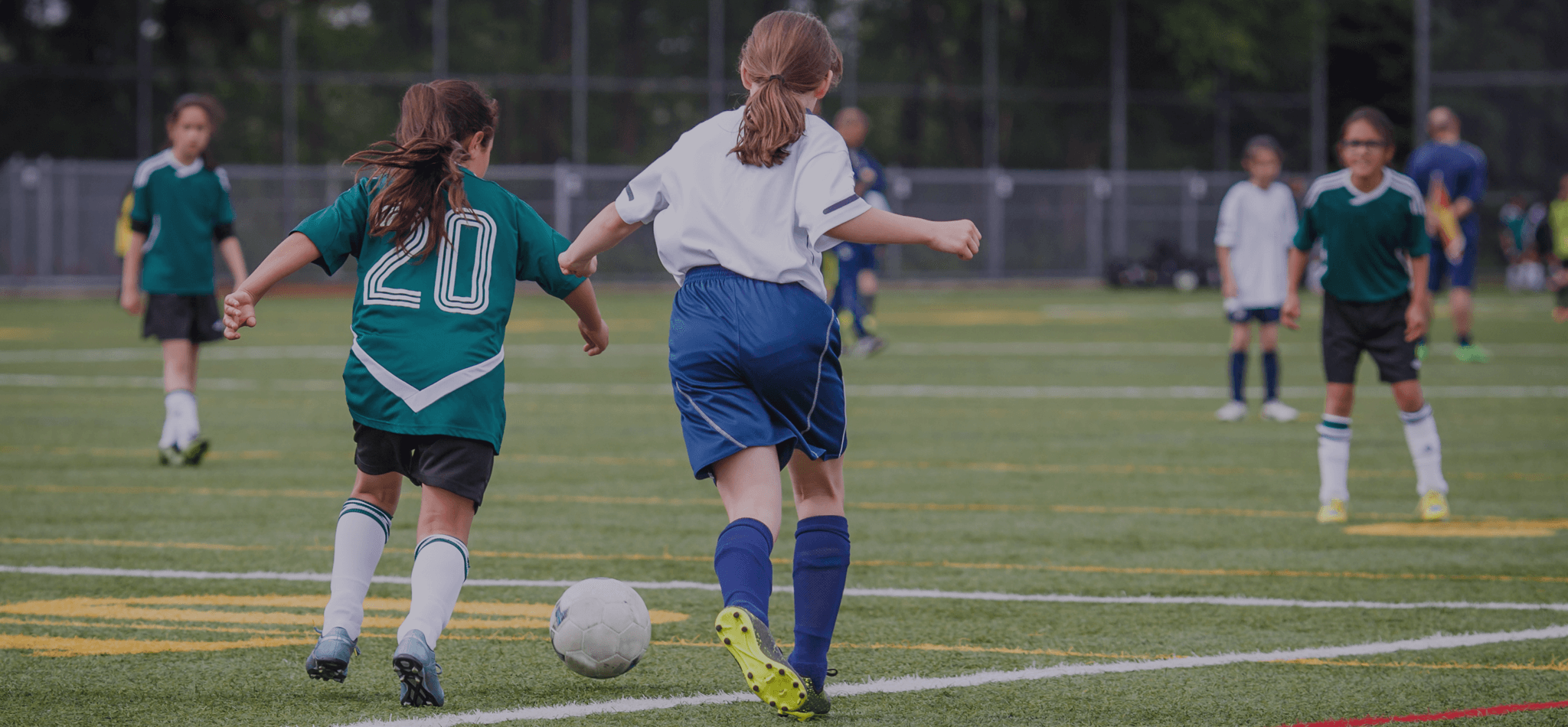As a mom, you know that the change of season means sweater weather, Pumpkin Spice Lattes, and fall Sports. As exciting as all of this can be, competition season can also bring some stress for kids (which can mean stress for families too).
Why do kids get stressed for competition?
Kids spend a lot of time in practice, and often, the focus of practice is preparing for competition. So, day-in and day-out, they’re told how important their competitions are. This adds unnecessary stress rather than helping your child learn to trust in their training and be confident walking into their meets or performances. When you add in the fact that sport has winners and losers, and developmentally, your kids care what others think, you have a recipe for stress. As a parent, what can you do?
1. Build awareness for triggers and responses to stress
When it comes to nerves, it’s important to know about state and trait anxiety. State anxiety is related to experiencing anxiety/nerves in certain situations (or states), like at competition, or in the final 2 minutes of the game. Trait anxiety is having a certain predisposition to experience anxiety or nerves. You can experience both.
An athlete with higher trait anxiety is likely to interpret more situations as stressful than someone with lower trait anxiety, but both athletes may experience state anxiety when they play their rival.
By helping your kids learn about what triggers them to experience nerves, as well as how they respond when they feel stressed (maybe they feel sick, their heart races, or they can’t think straight), they’re more prepared to deal with what’s happening.
2. Teach them how to calm down and get control of their inner voice when it takes them off track
Once your athlete is more aware of what triggers their nerves, as well as what they experience, they’re better able to deal with it. For most athletes, when they feel nervous (which is normal in competition), they’ll have a physical reaction, such as a racing heart, and a mental reaction, perhaps worries about their performance).
Take the time before competition to teach them how to breathe deeply, especially when they feel their nerves start to build. You also want them to notice when their inner voice gets off track (with worries, or by focusing on other competitors). When this happens, they need to tell themselves to “knock it off!” and then think about something positive or helpful. Both strategies, breathing to calm down, and changing negative thoughts, can and should be used in practice and in life so that these skills are helpful at competition.
You might also want to come up with a signal so that if you see your athlete stressing out at a meet, but they haven’t noticed it yet, or they’ve forgotten to use their mental skills to calm down, you can remind them. The more they practice deep breathing and positive thinking, the more prepared they’ll be to use these successfully at their meets.
3. Remember that you’re their parent: your job is to love and support, not to coach
Your athlete wants to do well at their meets; they also spend a lot of time with their coach, who also wants them to do well; that’s part of their job! So, your athlete is already dealing with at least two sources of pressure. Understand that your encouragement can be easily interpreted as more pressure, so do your best to remember that your job is to be their parent: love them and support them no matter what!
Resist any urges to provide coaching, or to dissect their practices and meets. If they want that sort of help, they’ll ask for it. If not, stick to positive encouragement and love. Want to know how one of the best athletes, Abby Wambach, checks in with her kids after a game? It’s pretty inspiring, check it out here.
Even though your kids do have coaches, and spend a lot of time at practice, there may not be enough attention given to mental preparation for potential competition stress and nerves. Teaching your kids how to handle these situations is a fantastic gift that you can give your kids for the Fall Season, and beyond!
